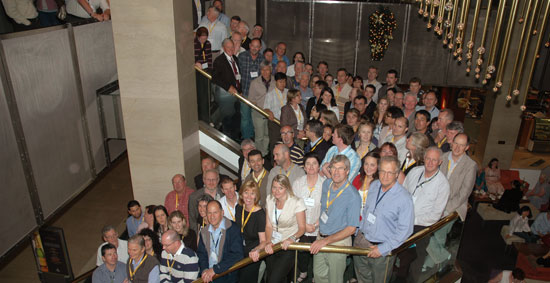 Officially launching the CRC for High Integrity Australian Pork, Chairman of the CRC Committee, Mr Neville Stevens AO, said it had the potential to build quality jobs and products for Australia.
Officially launching the CRC for High Integrity Australian Pork, Chairman of the CRC Committee, Mr Neville Stevens AO, said it had the potential to build quality jobs and products for Australia.
Speaking in Adelaide, on the weekend of the new Pork CRC’s inaugural annual conference, he noted that the CRC was well positioned to address the challenges of environment, health and welfare and developing innovative carbon friendly solutions.

Describing it as a noble investment in the future of the industry and regions around Australia, he was confident it would emulate the success of the first Pork CRC.
Mr Stevens closed by wishing the Pork CRC and the Australasian Pig Science Association (APSA) every success in their endeavours, after pointing out that the link between APSA and the Pork CRC went back to the beginning of the Pork CRC in 2005.

Celebrating getting the new CRC for High Integrity Australian Pork show on the road were more than 100 delegates at the 2011 Pork CRC Annual Conference at the Adelaide Hilton.
The launch of the new Pork CRC was held in conjunction with the 2011 APSA scientific meetings and preceded the A.C. Dunkin Memorial Lecture, “Was the Co-operative Research Centre (CRC) for an Internationally Competitive Australian Pork Industry worth the investment?”, delivered by Pork CRC Chairman, Dr John Keniry.
Dr Keniry concluded his oration by saying that the benefits of the Pork CRC were significant and defined in terms of tangible economic benefits to the Australian pork industry, as well as less readily quantifiable benefits, that had enabled the industry to work collaboratively to address new challenges.
The new Pork CRC’s inaugural annual conference was held the day before its launch and according to CEO, Dr Roger Campbell, the 120 conference delegates, including representatives of all participants, now better understand the Pork CRC’s structure, how priorities have been established and how the new R&D process works.
“We workshopped priorities across the four programs and enjoyed some positive feedback, plus it was an opportunity for all participants to meet and tell us what they would contribute to the Pork CRC and what they expected from it,” Dr Campbell said.
“I sincerely thank all participants of the old and new Pork CRC for their commitment and support and together we can now begin to deliver fresh outcomes for the industry.”
Dr Campbell said positive outcomes were already being delivered, via projects transferred across from the first Pork CRC, through APL projects now to be managed by the Pork CRC and through several student projects in the area of group housing in gestation that commenced in 2011. The new projects should start early in 2012.
Pork CRC


